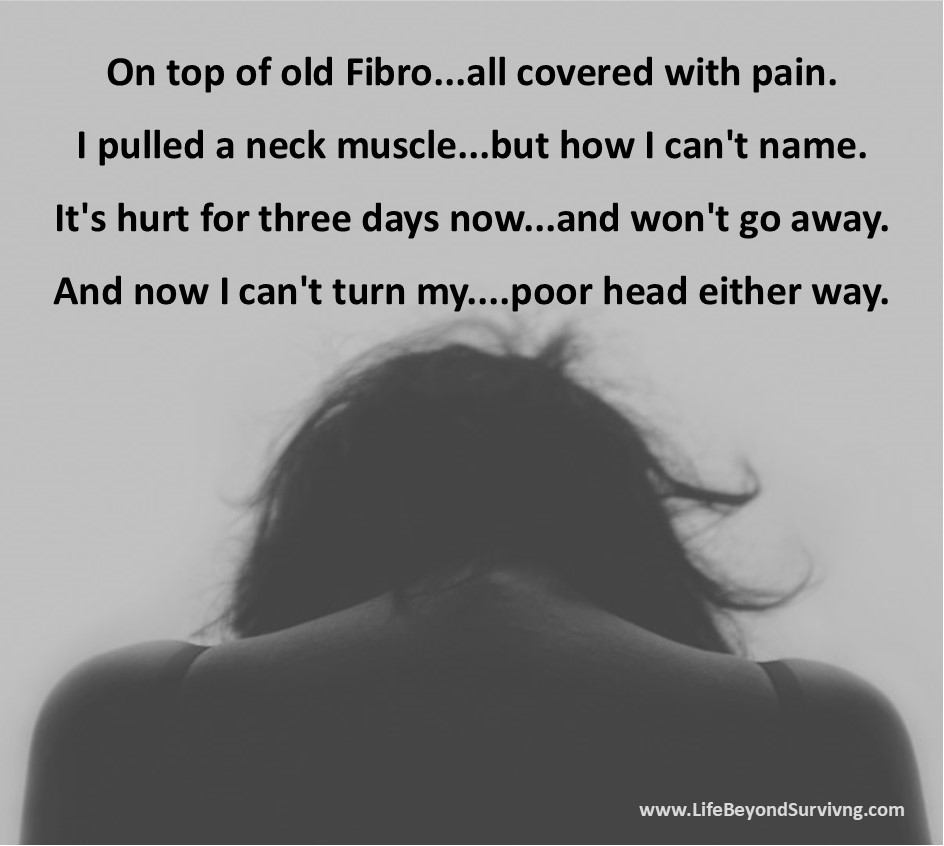Chronic illness is not only isolating because it takes away some amount of our ability to get out and do things. It is also isolating because it’s not understood. WE are not understood. It came to my attention last month that this could be partially our own fault. Now, before you look for that stone to cast in my general direction, please read on.

How many times have you not told someone how you really feel for fear of being told you’re “complaining?” How many times have you under-reported to your friends and family how MUCH you hurt? How tired you REALLY are? Part of what I’ve shared here is not to talk about our issues too much with those who don’t understand it in order to minimize the frustration that comes from being questioned, grilled really, or told we don’t look sick or are making mountains out of molehills.
However, recently I reflected on my training in speech communication. The titles of most of my communication studies start out, “Say What You Mean…” and I wondered if there is a need to do that in our chronic life. Maybe it’s time we started saying what WE mean.

Replace Overused Terms
“I’m really tired today” sounds like every Tom, Dick, and Mary who had a tough day yesterday. “I’m REALLY tired.” doesn’t sound much better. How many times have you heard someone who doesn’t have a chronic illness say that? What about when YOU said that and had someone reply with, “Yeah, I worked late last night.” It suddenly occurred to me that uttering overused terms might be part of the reason we aren’t taken as seriously when we try to share how we feel with those who don’t have the same point of reference for chronic illness as we do.
Terms like tired and pain have been used to mean anything from “I was up late studying last night” and “I cut myself shaving” to “I’m too exhausted to take a shower” and “I had my wisdom teeth out without benefit of novocaine!” Instead, it might be better to…
Be More Specific
In some cases, it might be better to use more specific terms. Even words like exhausted, worn out, and run down are overused. Often it’s more descriptive to use words the medical profession refers to like weak or fatigued. Pain can be referred to by the scale of 1-10 as it is by most chronic illness physicians.
At Other Times, it’s Better to Spell Things Out
Let’s face it, even exhausted doesn’t describe how we feel. Sometimes it’s best to give a short example of how tired we are that illustrates better what we deal with. “I’m so exhausted, I had to rest after taking a shower.” “I wake up feeling like I can’t get out of bed.“
Another way to describe your pain is with the specific word for the type of pain you are experiencing: ache, twinge, throb, sharp pain, stabbing pain, or excruciating pain.
Don’t Use Terms That Don’t Mean Anything to Them
Lastly, though we who have these conditions know what they are, many who don’t have never even heard of the name of it let alone what it means for those who struggle with it.
While most people probably have heard of Fibro or Chrones, or Lupus, they have no idea what it means. Many people think Fibromyalgia is just pain and I don’t think many have any idea what Chrones or Lupus is at all. In some cases, it makes sense to give a good friend or close relative a more in-depth description of your illness or situation in order for them to be of more support. If you’re going to be spending a lot of time conversing or being with a person, it makes sense to give them the tools to understand why you may not feel up to getting together.

Some conditions are much less known that even the name of it isn’t ringing any bells for most people. I never heard of Essential Tremor until I was diagnosed with it. Not only is Essential Tremor not descriptive, but it’s counter-intuitive. Sounds like something you NEED. lol
Another term neurologists use is Benign Essential Tremor. Benign? Try living with shaking so bad you stab yourself in the eye trying to put on mascara or spill hot coffee on your lap! Instead of using the specific medical diagnosis, I often refer to it as tremors or as a neurological disorder.
In the case of Fibro, it’s more descriptive to use the term, Central Nervous System disease. That gives it the proper respect for the havoc it causes in the lives of Fibro Warriors and the kinds of issues we need to deal with on a daily basis.
Finally, the term chronic illness, itself, isn’t fully understood by most people. I can’t tell you how many times people have asked me if I’m all better now. It amazes me, but people don’t get the chronic part of chronic illness.
Chronic means there is NO Cure and the best that can be hoped for, without a miracle of God, is for it to be managed. Believe it or not, that is something that must be explained from time to time. People who don’t live with a chronic issue have no frame of reference for this. To them, long-term is a few months at most.
I pray this has ministered to your soul. I pray that this helps you get across to those in your life who need to know what your chronic illness means for you and I pray that it allows you more support from family and friends.

